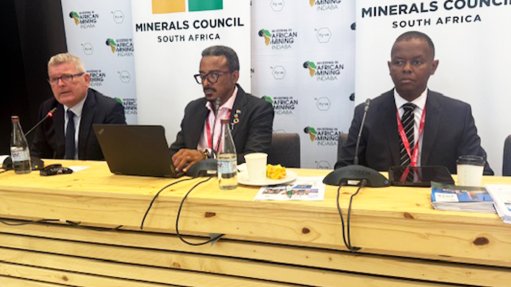New study evaluates potential for nitrogen interventions to combat climate change
An international research team has combined multidisciplinary methods to evaluate how nitrogen interventions could improve air quality and reduce nitrogen deposition.
The study, published in scientific journal Science Advances in August, found that interventions, such as improving fuel combustion conditions, increasing agricultural nitrogen use efficiency, and reducing food loss and waste, could significantly lower premature deaths attributable to air pollution, crop losses and ecosystems risks.
While typically considered for individual goals such as air or water quality, recognising the broad co-benefits of nitrogen management has been posited by the researchers as being critical for future policy design and effective pollution control.
Food and energy production have caused substantial nitrogen pollution, affecting air and water quality and posing risks to the climate and ecosystems. The new study shows how nitrogen interventions can reduce pollution, improving health, and supporting the UN’s Sustainable Development Goals (SDGs).
The Earth’s nitrogen cycle is among the most heavily exceeded planetary boundaries, the researchers say. Agricultural production and fossil fuel burning release nitrogen pollutants such as ammonia, nitrogen oxides and nitrous oxide, which contribute to air pollution and damage ecosystems.
These pollutants have potentially detrimental effects on human health, crops and ecosystems. Given growing global energy and food demand, this damage is expected to increase even further, the researchers say.
The potential of nitrogen pollution mitigation technologies and policies – dubbed nitrogen interventions – for improving air quality and reducing impacts on ecosystems, has been underexplored.
The researchers, therefore, posit that a gap exists between traditional nitrogen budget research, which tracks nitrogen flows across air, water and soil, but lacks detail on biogeochemical transformations, and Earth science research, which models these transformations but usually focuses on a single environmental medium.
The research paper is aimed at addressing this gap.
“We established an integrated assessment framework combining future nitrogen policy scenarios with integrated assessment models, air quality models and dose-response relationships to assess how ambitious measures can reduce air pollution and ecosystems damage at detailed geographic levels,” explains lead author Yixin Guo, a postdoctoral researcher jointly appointed by Peking University and the International Institute for Applied Systems Analysis (IIASA).
The study shows that, by 2050, high-ambition nitrogen interventions could reduce global ammonia and nitrogen oxides emissions by 40% and 52%, respectively, compared with 2015 levels. It is predicted that this could reduce air pollution, prevent 817 000 premature deaths, lower ground-level ozone concentrations and cut crop yield losses.
Without these interventions, environmental damage will worsen by 2050, with Africa and Asia being affected the most. On the other hand, should those measures be implemented, Africa and Asia would benefit from them the most, the researchers say.
“We found that nitrogen interventions offer increasing benefits over time, with greater effects by 2050 than by 2030. The biggest reductions in ammonia and nitrogen oxides are expected in East and South Asia, mainly through improved crop practices and technology adoption in industrial sectors.
“These reductions will help lower air pollution levels, making it easier for many regions to achieve the World Health Organization interim targets. Additionally, as populations grow, the health benefits of these interventions will increase, especially in developing areas,” Yixin says.
Study co-author and Peking University Department of Atmospheric and Oceanic Sciences tenured associated professor Lin Zhang adds that the results highlight that nitrogen interventions can significantly help achieve multiple SDGs, including Good Health and Wellbeing (SDG3), Zero Hunger (SDG2), Responsible Consumption and Production (SDG12), and Life on Land (SDG15).
“This collaborative research shows how IIASA research can be rolled out globally. Solutions for environmental impacts will vary by region, enabling customised policy recommendations, even for complex issues like nitrogen pollution,” study coauthor and IIASA energy, climate and environment programme pollution management research group senior researcher Wilfried Winiwarter says.
Article Enquiry
Email Article
Save Article
Feedback
To advertise email advertising@creamermedia.co.za or click here
Comments
Press Office
Announcements
What's On
Subscribe to improve your user experience...
Option 1 (equivalent of R125 a month):
Receive a weekly copy of Creamer Media's Engineering News & Mining Weekly magazine
(print copy for those in South Africa and e-magazine for those outside of South Africa)
Receive daily email newsletters
Access to full search results
Access archive of magazine back copies
Access to Projects in Progress
Access to ONE Research Report of your choice in PDF format
Option 2 (equivalent of R375 a month):
All benefits from Option 1
PLUS
Access to Creamer Media's Research Channel Africa for ALL Research Reports, in PDF format, on various industrial and mining sectors
including Electricity; Water; Energy Transition; Hydrogen; Roads, Rail and Ports; Coal; Gold; Platinum; Battery Metals; etc.
Already a subscriber?
Forgotten your password?
Receive weekly copy of Creamer Media's Engineering News & Mining Weekly magazine (print copy for those in South Africa and e-magazine for those outside of South Africa)
➕
Recieve daily email newsletters
➕
Access to full search results
➕
Access archive of magazine back copies
➕
Access to Projects in Progress
➕
Access to ONE Research Report of your choice in PDF format
RESEARCH CHANNEL AFRICA
R4500 (equivalent of R375 a month)
SUBSCRIBEAll benefits from Option 1
➕
Access to Creamer Media's Research Channel Africa for ALL Research Reports on various industrial and mining sectors, in PDF format, including on:
Electricity
➕
Water
➕
Energy Transition
➕
Hydrogen
➕
Roads, Rail and Ports
➕
Coal
➕
Gold
➕
Platinum
➕
Battery Metals
➕
etc.
Receive all benefits from Option 1 or Option 2 delivered to numerous people at your company
➕
Multiple User names and Passwords for simultaneous log-ins
➕
Intranet integration access to all in your organisation


















